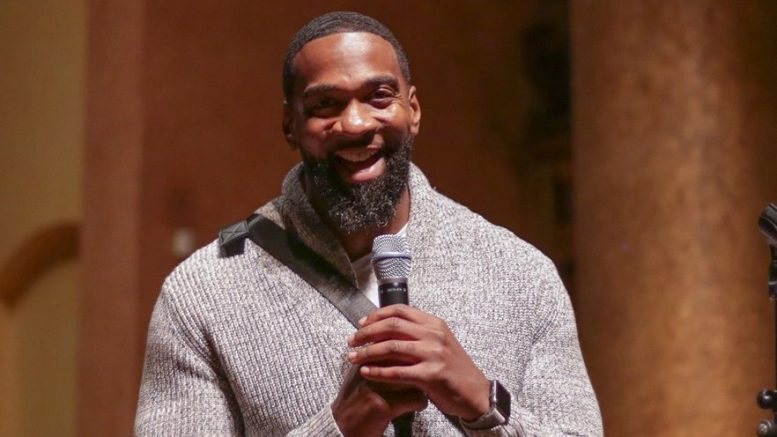A researcher at the University of Manitoba has won a Community Builder Award presented by United Way East Ontario. Warren Clarke, professor in the department of anthropology, won the award for research and community work stemming from his recent doctoral research at Carleton University.
Clarke is also a cultural commentator and does equity and diversity consulting work. He has appeared on various television and radio programs discussing racism in the news, and was interviewed by CBC News following the conviction of Derek Chauvin for the murder of George Floyd.
Clarke’s work focuses on empowering Black youth against the social, economic and political tensions they face in a settler-colonial society. Clarke founded the Afro-Caribbean mentorship program to recognize and combat racism and other forms of discrimination that Black and other racialized students face. He also founded Barbershop Talks, a series of events where barbershops are used to create a safe space for Black community members to meet and discuss their experiences.
While these community projects are not explicitly academic, Clarke’s doctoral research into the lived experience of racialized Canadians intersects with the values of his community work. Clarke’s dissertation focused on how first- and second-generation Canadian African and Caribbean Black young men experience youth training programs in Ontario and Quebec.
“My contribution from a sociological and anthropological way of doing research is to always trouble what it means to live in this white settler Canadian nation-state,” Clarke said.
Clarke’s doctoral research draws on theorists such as Frantz Fanon to understand Canadian social norms, and methodologies such as phenomenology to understand the experiences of young Black men.
Clarke is hoping to tie his community work back to his academic research. One method for collecting empirical data is to conduct qualitative interviews of students participating in the Afro-Caribbean mentorship program. Clarke contends that this program provides an opportunity to understand how supporting Black youth, particularly men, may influence their social development and social determinants of health.
In these community programs, Clarke found the experience of Black homelessness was different from the experience of other demographics.
“These young, marginalized men are experiencing moments of displacement or moments of homelessness, and the homelessness that they’re experiencing isn’t [the traditional] notion […] of sleeping on the street or living in shelters,” Clarke said.
“The moments of homelessness that these young men were experiencing was living [with] the neighbourhood auntie or living [with] the neighbourhood uncle, who are also of African descent, but not of the same ethnic background.”
Clarke pushes back against the homogenization of racialized experience in Canada. He argues that Blackness is a white settler-colonial narrative and that the experience of Blackness is different from the experience of Indigeneity.
“I’m very particular to refrain from using acronyms such as BIPOC [Black, Indigenous and people of colour] because that’s another way of homogenizing and using the colonial language to then give identity to those who are not white,” Clarke said.
During recent Black Lives Matter protests in Canada and the United States, similarities were drawn between the experiences of Black people in America and Indigenous people in Canada. Clarke pushes against this narrative as well.
“As an African-descent man, who I identify as, I have no connection to land. Only through my citizenship, based on where I was born, makes me anything remotely close to [connected to the land],” Clarke said.
Despite Clarke’s doctoral research in sociology, he says he still relies on anthropological narratives to “flesh out” the sociological phenomenon of anti-Black racism. Clarke says there has also been some gentle sparring from sociologists regarding his switch from a PhD in sociology to being a researcher in anthropology.
“My colleague laughs at me when we talk about this topic,” Clarke said.
“He says [I] chose the dark side over at anthropology.”


